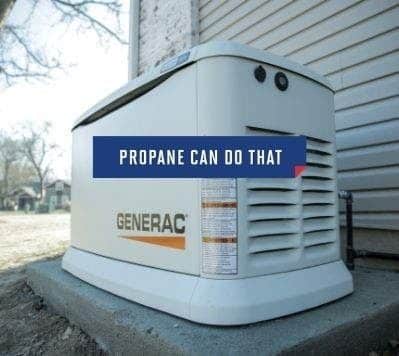Storm Preparedness for Propane Users
Living in Missouri means you get to enjoy all four seasons, but it also means you’re susceptible to the weather that comes with them. Being prepared is the best way to ensure that you and your family stay safe during severe weather. Start planning now, before a storm hits, so you will have a plan in place and your family will know what to do in the event of an emergency. Following these tips can help you save money and energy and can prevent you from being left in the dark and cold.
Steps to Prepare for Severe Weather
First, make sure everyone in your family knows what to do in case of an emergency. Sit down together and make a plan so everyone knows where to go during a storm and what protective measures to take. Then, create an emergency kit including a weather radio, flashlight, batteries, first-aid kit and other necessities and store it in your basement or designated safe place.
Regularly get your appliances and propane system inspected and serviced by a qualified technician to ensure they are working effectively and efficiently. Doing this early, before heating demands place a strain on your furnace or water heater, can avoid a chilly home or cold showers. Next, consider installing UL-listed propane gas and carbon monoxide detectors in your home. These devices will help ensure that any leak is detected and can be addressed immediately.
Think a season ahead when filling your tank. Talk to your propane supplier now about automatic deliveries to make sure you don’t run out of propane. Some suppliers may offer summer-fill discounts which let you head into the heating season with a full tank. You have more control over cost and priority for deliveries when the demand is less. Don’t wait until everyone else needs service which will reduce your options.
In the colder months, install and set a programmable thermostat to save an estimated 10 percent on your bill. Heating only when you need it, adjusting the temperature at nighttime or when you are away, will save money without sacrificing comfort. Set your water heater to no higher than 120 degrees Fahrenheit and install low-flow showerheads or temperature-sensitive shower valves to reduce energy consumption. Water heating accounts for 14 to 18 percent of most energy bills, so implementing energy-efficient measures here can help your savings add up quickly.
Consider adding a propane standby generator. Propane generators are a great feature for Missouri homes that add an additional level of security. Propane generators will start up automatically in the event of a power outage, and they can power your entire home for days if needed. Propane is an ideal standby fuel because it doesn’t degrade over time, so you can have peace of mind knowing that a propane generator will keep your house running during and after thunderstorms, ice storms, or tornadoes.
When Severe Weather Hits
If a storm does hit, there are several important issues to address. In the event of flooding, you should shut off your gas at the tank if it is safe to do so. This can be done by turning off the main gas supply valve on your propane tank. However, if there is lightning in your area or you hear thunder, stay away from metal objects such as your propane tank.
It is important to check all of your propane equipment after a storm has passed. Check for damage to your propane tank or gas lines. If your tank or meter has been dislodged from the service line, it is likely leaking gas. Call your utility company or propane provider immediately. Also, beware of downed power lines in your area.
Next, inspect all your propane appliances for water or other damage. However, beware of standing water, and do not touch an outlet or light switch or inspect an appliance while it’s in contact with water. If you have turned off your gas, or if any of your propane equipment has been underwater or you suspect that it has been damaged in any way, schedule an inspection by a qualified service technician. National safety standards require an inspection and leak test of any propane system that has incurred an interruption of service.
Finally, never use outdoor propane appliances in enclosed areas, especially during a power outage. Propane can bring many benefits to your home, but these precautions are necessary to ensure that you and your family stay safe during and in the aftermath of a storm.
Now is the time to assess your home and make sure you are doing all you can to prepare it for the next bout of severe weather. When the sirens sound, the last thing you want is to be left in the dark or cold.
Propane provides energy efficiency, low energy costs and greater comfort. If you’re thinking about building a new home, converting your current one to propane or adding new propane appliances to your propane system, talk with your local propane supplier to learn about all the ways you can use propane, clean, American energy.
Learn more about propane safety.
